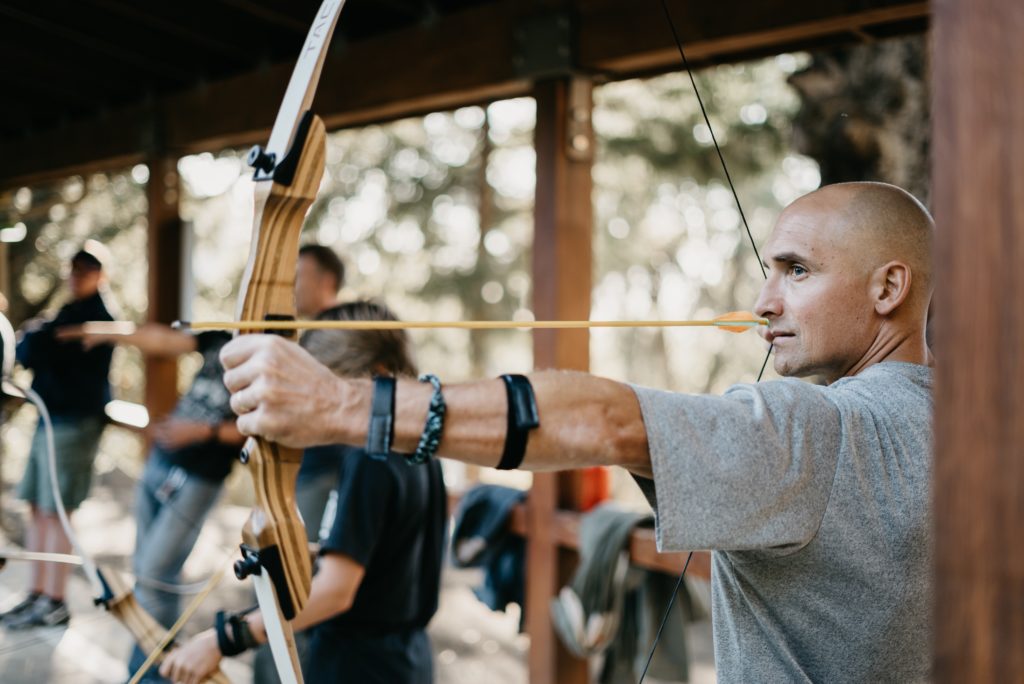Posts Tagged ‘Competitive Archery’
Competitive Archery – Focus Without Holding Your Breath (Alexander Technique, Posture, Pain, Strain, Injuries)(Albuquerque)
This ebook, An Alexander Technique Approach to Competitive Archery, is published on this website in a PDF format. It is very detailed and practical, and it will give you the physical tools you need to take the limits off of your ability to create an extraordinarily accurate archery technique.
This ebook is also for sale on all AMAZON websites in a KINDLE format.
Located in Albuquerque, New Mexico, U.S.A. (MOVEMENT THERAPY)
IT IS SO EASY TO HOLD YOUR BREATH WHEN YOU’RE FOCUSING ON CHANGING THE WAY YOU DO SOMETHING, FROM PLAYING A MUSICAL INSTRUMENT TO WALKING TO LIFTING WEIGHTS TO MEDITATING.
What you’re doing when you hold your breath in an activity, is you’re creating internal tension as you release external voluntary musculature tension. You will look good at what you’re doing but eventually feel bad. What do I mean?
The Alexander Technique goal in movement and even in being relatively still is not to immobilize any part of your body inside and out. I remember in my Alexander Technique training that one of my teachers referred to breathing as an internal massage.
Why do we usually hold our breath when changing our habitual use in an activity? Holding your breath is the result of trying to make postural and technique changes and get them RIGHT. What do I mean?
Usually when you’ve gotten to a place where you want to make major changes to how you play a musical instrument or run etc., it is because you can’t achieve your goal of a high enough level of performance and/or you’re hurting in the activity.
This is a scary place to be if the activity is important to you and you’re anticipating having to give it up. You really want to continue to do what you’re doing without hurting.
YOU WANT TO MINIMIZE THE EFFECTS OF YOUR FEAR AS YOU REVAMP YOUR TECHNIQUE! This means focusing on how you use your body in a way that you don’t continue to cause wear and tear to your body. Wear and tear to the body always eventually becomes pain.
An example: Let’s say you want to have released floating shoulders when you play the piano or when you run. You place your awareness on easy shoulders in these activities and continue to return to breathing, allowing yourself to breathe as you make this postural technique change.
WHAT DO I MEAN “YOU ALLOW YOURSELF TO BREATHE” AS YOU PLAY THE PIANO OR RUN?
When you hold your breath you are simultaneously doing something, tensing to stop breathing, and not doing something, not breathing. Not breathing is not an option, because you will have to breathe obviously to stay alive.
If this is what you’re doing, then you’re alternating between holding your breath and gasping for air. I’ve actually heard musical recordings where you hear the performer gasp for air over the sound of the instrument. This meant the performer was holding his or her breath during the difficult passages.
IF YOU LEARN TO NOT HOLD YOUR BREATH AS YOU REVAMP YOUR TECHNIQUE IN AN ACTIVITY, THEN YOU ARE CREATING A COMPETE OVERHAUL OF YOUR TECHNIQUE. YOU WON’T HAVE TO EVENTUALLY GET INTO PHYSICAL TROUBLE, AS YOU DO WHAT YOU LOVE, WITH A BODY FREE INTERNALLY AS WELL AS EXTERNALLY.
